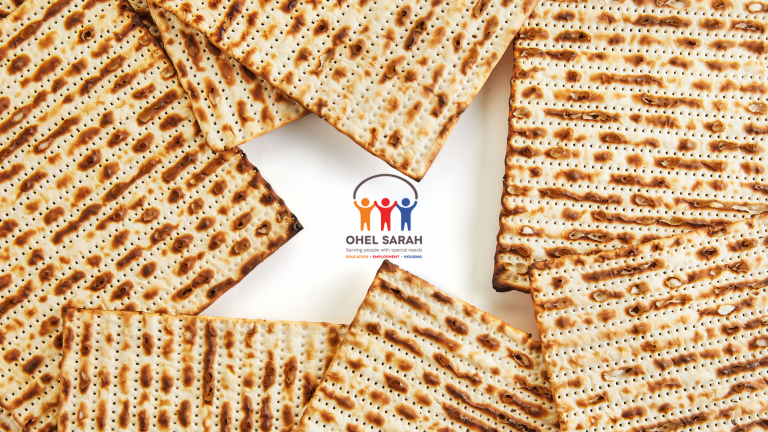
Pesach Begins Evening of
Mon, Apr 22, 2024 – Mon, Apr 29, 2024
What is Pesach?
Pesach, or Passover, is an 8-day Jewish holiday during the Jewish month of Nissan- at the beginning of spring. ‘Pesach’ means to pass over, commemorating the miracle G-d performed for the Jewish people enslaved in Egypt, where He passed over their homes during the 10th plague that killed the firstborn of every Egyptian home.
It is a holiday to commemorate the miracles G-d performed for the Jewish people while remembering the harsh lives our ancestors led during their slavery. Any chometz (food made of flour and water that was allowed to rise) is removed from the home, and matzah (flat, unleavened bread) is eaten instead. Maror (bitter herbs) is eaten to remember the brutal conditions that the Jews lived in.
The history of Pesach:
The celebration of Pesach is based on the story of Exodus, when G-d saved the Jewish people from the cruel Egyptian rule and ultimately brought them to the Land of Israel. The story begins when the Egyptians enslaved the Jewish people, forcing the women, men, and children to perform back-breaking labor every day. They were vicious and cruel, enacting new laws to make the lives of the Jews increasingly miserable.
The king of Egypt, Pharaoh, even decreed to kill every Jewish male newborn when he had a dream that a Jewish man would redeem the Jews from their bondage. Ironically, his own daughter Princess Batya saved Moses, a Jewish baby floating in the Nile river, and brought him to her father’s palace.
Batya raised Moses in the palace of his greatest enemy until he ran away. One day, G-d revealed himself to Moses in a thornbush and sent him as a messenger to Pharaoh, ordering him in the name of G-d to let the Jewish people go. Pharaoh refused, so G-d inflicted the people of Egypt with the first plague- all the water in the land turned to blood for a week.
Pharoah begged Moses to end the plague, promising to release the Jewish people. But as soon as the plague ended, Pharaoh changed his mind and did not relent. So G-d brought the second plague- millions of frogs all over Egypt. This repeated itself 10 times, with each plague lasting a week). Here are the ten plagues: blood, frogs, lice, wild animals, death of the animals, boils, hail, grasshoppers, darkness, and the death of every firstborn.
Pharoah suddenly realized that he was the firstborn of his family and would therefore die imminently. He ran to find Moses in the middle of the night and ordered him to round up all the Jews in Egypt and leave the country immediately. Thus, the Jewish people were released from their decades of cruel slavery and ultimately were appointed as G-d’s chosen nation at Mount Sinai in the desert.
Why do we celebrate Pesach?
The main theme of Pesach is two-fold: remembering the ruthless Egyptian rule that caused endless suffering to the Jews and celebrating the miracles G-d performed for the Jews during this time.
How is Pesach celebrated?
For the entire 8 days of Pesach, Jews may not own or consume any chometz. This is because when Pharoah urged the Jewish people to leave Egypt, they were in the middle of baking bread. They flung their doughs over their shoulders and hastily walked out of the land. The bread jostled on their backs as they walked in the hot sun, which didn’t allow them to rise. The dough resulted in matzah, which Jews eat instead of bread during Pesach.
Today, the homes are cleaned extensively to ensure no trace of chometz. Many people use the opportunity of Pesach cleaning to ‘spring clean’ the house simultaneously. There is a special ceremony on the day before Pesach where the final search for chometz takes place, and all remaining foods are burnt.
On the first two nights of Pesach, the family hosts a ‘seder,’ where the Haggadah – the story of the Exodus from Egypt- is read. Several rituals during the seder include eating the maror, eating matzah, drinking four cups of wine or grape juice, and discussing the story in great depth.
People with special needs such as cognitive disabilities, ADHD, autism, and other disabilities, may find the Pesach seder boring. They may have a difficult time following the rituals and staying focused until the end. If you will have a child or adult with special needs at your Pesach seder this year, download our e-book with invaluable tips and tricks to help them feel involved and engaged in the Pesach seder.
